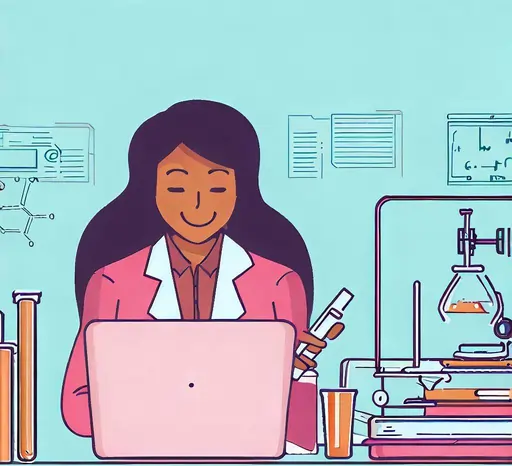
The relevance of authentic assignments to real-world situations is another important factor. These assignments fill the gap between theoretical ideas and real-world applications by including business-related issues, case studies, or data sets. Students' understanding is improved and they are also better prepared for the demands of the petroleum engineering industry thanks to this real-world connection. If you're seeking to complete your Petroleum Engineering assignment with precision and proficiency, enlisting the support of a reliable academic resource like ChemicalEngineeringAssignmentHelp can greatly enhance your understanding and ensure exceptional results.
- Relation to the Real World:
- Thorough Understanding:
- Complementary Knowledge:
- Active Participation:
- Critical Thinking:
- Student Independence:
- Collaboration in Learning:
- Learning Assessment:
The relevance of authentic petroleum engineering assignments to real-world scenarios is one of their core characteristics. For students, real-world applicability offers a concrete and engaging learning experience that enables them to understand abstract ideas in a realistic setting. Students must comprehend how these principles apply to actual situations in order to truly excel in petroleum engineering; simply knowing equations or theoretical principles is not enough.
Let's use reservoir engineering, a crucial component of petroleum engineering, as an illustration. An authentic assignment would require students to evaluate a real-world reservoir scenario rather than merely instructing them on the mathematical models used to calculate the reservoir's pressure or oil recovery factor. Understanding the geology and physical characteristics of the reservoir, making production performance predictions using different oil recovery methods, and suggesting the best course of action for optimizing oil recovery are some examples of what this might entail. Students are guaranteed to learn the necessary technical skills as well as the ability to apply those skills in real-world settings thanks to this connection to the outside world.
Promoting a thorough understanding of the concepts being taught is the second important characteristic. In traditional assignments, students frequently concentrate on memorization of solutions or strategies to perform well on the test. This "surface learning" can lead to a lack of understanding of the underlying principles and poor long-term knowledge retention. On the other hand, authentic petroleum engineering assignments place an emphasis on 'deep learning,' where students apply analysis, critical thinking, and problem-solving skills.
Assignments can be created to include open-ended questions or challenging problem-solving exercises to promote in-depth understanding. For instance, an assignment could give students a variety of crude oil samples with various properties (e.g., temperature, pressure, composition), and ask them to choose the best method to measure the viscosity of those samples rather than having them calculate the viscosity of crude oil using a given formula. Students will gain a deeper and longer-lasting understanding of the subject as a result of having to comprehend the underlying theories that underlie various viscosity measurement techniques as well as how they can be used in various contexts.
Petroleum engineering is a multidisciplinary field that also draws ideas from mathematics, physics, chemistry, and geology. Since authentic assignments call for students to combine their knowledge from various disciplines to solve problems, they should reflect this integrative nature.
For example, a drilling engineering assignment might ask students to create a drilling plan for a brand-new oil well. This job would have a number of smaller tasks within it, such as choosing the best drill bit (based on knowledge of materials science), selecting the right drilling fluid (requiring knowledge of fluid mechanics and chemistry), and anticipating potential drilling hazards (requiring knowledge of geology and rock mechanics). This integrated approach not only improves students' comprehension of each individual discipline but also enables them to recognize how various areas of petroleum engineering are interconnected.
Promoting active engagement is a crucial aspect of authentic assignments. Active learning involves students actively participating in the learning process, as opposed to passive learning, in which students are merely recipients of information. This can be accomplished by creating assignments that pique students' curiosity, confront their assumptions, and inspire them to investigate novel concepts.
An assignment might, for instance, include a case study of a recent oil spill incident. Students would be expected to look into the cause of the spill, assess how it affected the environment, and suggest ways to stop similar occurrences in the future. Such a task would encourage students to apply their knowledge and abilities in a meaningful and socially responsible way while also piquing their curiosity about current problems in the petroleum industry.
Students review their understanding, identify their learning gaps, and develop improvement strategies through the process of reflective thinking. It is a crucial aspect of authentic assignments as well as self-regulated learning.
Including self- and peer-assessment activities in petroleum engineering assignments is a good way to promote reflective thinking. Students might be asked to reflect on their design process after completing a design project, identify what they did well, what they could have done differently, and how they could improve in future projects, for instance. They might also be asked to evaluate the work of their peers, offering helpful criticism and gaining insight from others' efforts. These activities for reflection and evaluation can improve students' metacognitive abilities, encouraging lifelong learning and continuous development.
Students should have some autonomy as they work independently on authentic assignments, making decisions and solving problems. Students are inspired to take more ownership of their education as a result of this autonomy.
Students may be given the option to select their project topic or method of investigation in a petroleum engineering assignment. Students could, for instance, be allowed to select the simulation program, reservoir model, and production strategy for a reservoir simulation assignment. While the teacher would offer the necessary direction and assistance, it would be up to the students to manage their project, troubleshoot problems, and defend their choices. This independence can give students more self-assurance and equip them for the difficulties that the petroleum industry will present in the real world.
Professionals in the petroleum sector frequently collaborate in interdisciplinary teams to address challenging issues. Therefore, authentic assignments ought to encourage group learning, where students cooperate to share knowledge, swap ideas, and accomplish shared objectives.
Students from various specialties, such as chemical engineering, mechanical engineering, and environmental engineering, might participate in a group project on the design of a petroleum refinery, for instance. When working together to create an integrated, effective, and environmentally friendly refinery design, each student would contribute their particular area of expertise. The teamwork and communication abilities of the students can be improved through this collaborative learning experience, which is important for their future careers in the petroleum industry.
The principle of "assessment for learning," which states that assessment is not only a tool for grading but also a crucial component of the learning process, should be embodied in authentic assignments. This entails giving students timely, constructive criticism that aids in understanding their learning progress and directs subsequent learning.
This can be accomplished through the use of a variety of assessment techniques in petroleum engineering assignments, including tests, presentations, reports, and reflections. With the help of these techniques, students can learn to recognize their strengths and weaknesses, comprehend the standards that are expected of them, and develop learning strategies. This ongoing process of formative assessment can improve students' academic performance and learning engagement, making their educational experience more worthwhile and fruitful.
Conclusion:
In the field of petroleum engineering, creating meaningful assessments necessitates careful consideration of a number of crucial factors. Meaningful learning experiences require authentic petroleum engineering assignments that support learning objectives, incorporate real-world relevance, foster critical thinking, promote collaboration, offer timely feedback, and encourage self-reflection.
Instructors can successfully prepare students for the working world by creating assignments that closely resemble the difficulties they will face in their future careers. Authentic evaluations push students to apply their knowledge, decipher challenging problems, and come up with novel solutions. These assignments encourage student cooperation as well as teamwork and the ability to function well in multidisciplinary environments.
Providing timely and helpful feedback is a crucial component of accurate assessments. It enables students to continuously improve their skills and knowledge by assisting them in identifying their strengths and areas for development. Encouragement of self-reflection and metacognition also empowers students to take charge of their education and cultivate a growth mindset.
In conclusion, real-world assignments in petroleum engineering offer a solid framework for evaluating students' comprehension, know-how, and technical proficiency. Instructors can develop meaningful assessments that go beyond rote memorization and enable students to become competent, self-assured petroleum engineers by incorporating the eight critical qualities covered in this blog.
